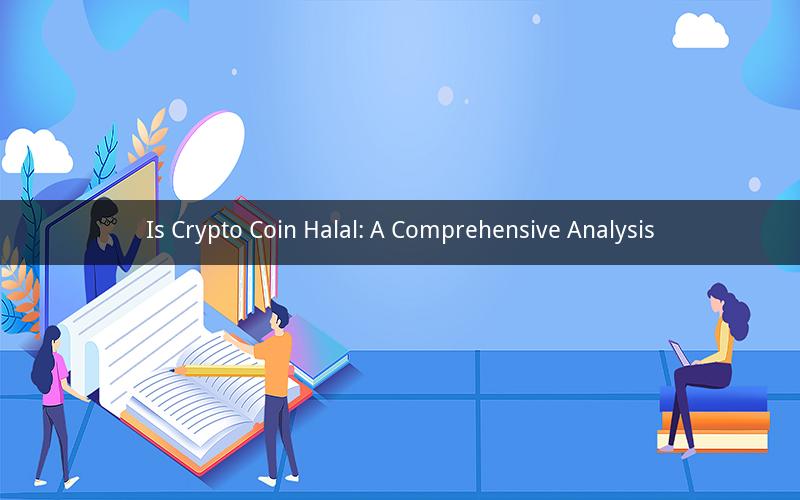
Introduction:
The rise of cryptocurrencies has sparked a heated debate among Muslims about their permissibility in Islam. The term "crypto coin halal" has become a buzzword, as Muslims seek to understand whether these digital assets are in compliance with Islamic principles. This article delves into the topic, examining various perspectives and providing a well-rounded analysis.
Section 1: Islamic Principles and Crypto Coins
1.1 Islamic Finance:
Islamic finance operates on principles derived from Islamic law, known as Sharia. These principles prohibit interest (riba), gambling (maysir), and unethical practices. In order to determine if crypto coins are halal, it is crucial to assess their alignment with these principles.
1.2 Interest and Riba:
One of the primary concerns regarding crypto coins is their association with interest. Many digital currencies, such as Bitcoin, operate on a decentralized system without the involvement of interest. However, some platforms may offer lending or borrowing services that involve interest, which is considered haram (forbidden) in Islam.
1.3 Maysir and Speculation:
Maysir refers to gambling or speculation in the Islamic faith. Critics argue that the volatile nature of crypto coins makes them akin to gambling, as their value can fluctuate dramatically. Proponents, on the other hand, contend that the underlying technology and purpose of crypto coins are different from traditional forms of gambling.
Section 2: Ethical Considerations in Crypto Coins
2.1 Transparency and Accountability:
A significant aspect of Islamic finance is transparency and accountability. Muslims are encouraged to engage in business practices that are transparent and ethically sound. In the case of crypto coins, concerns arise regarding the lack of regulatory oversight and the potential for money laundering or illegal activities.
2.2 Environmental Impact:
The mining process of crypto coins requires a substantial amount of energy, leading to concerns about their environmental impact. Some Muslims argue that the ecological consequences of crypto mining contradict Islamic principles of environmental stewardship.
Section 3: Expert Opinions and Legal Perspectives
3.1 Sharia Scholars' Views:
Various Sharia scholars have offered their opinions on the permissibility of crypto coins. Some argue that they can be considered halal if they comply with Islamic principles, while others believe they are inherently haram due to their association with interest and speculation.
3.2 Legal Framework:
The legal framework surrounding crypto coins varies across different countries. Some jurisdictions have implemented regulations to govern the use of digital currencies, while others remain largely unregulated. This legal uncertainty adds to the complexity of determining the halal status of crypto coins.
Section 4: Practical Considerations for Muslims
4.1 Risk Assessment:
Before investing in crypto coins, Muslims should conduct thorough risk assessments. This includes understanding the potential risks associated with the volatility of digital currencies and the lack of regulatory oversight.
4.2 Ethical Investment:
If Muslims choose to invest in crypto coins, it is crucial to prioritize ethical considerations. This involves researching the platform's business practices, ensuring transparency, and avoiding involvement in any activities that may be considered haram.
Section 5: Conclusion
The question of whether crypto coins are halal remains a topic of debate among Muslims. While some argue that they can be considered halal if they comply with Islamic principles, others believe they are inherently haram due to their association with interest and speculation. Muslims must carefully assess the risks and ethical considerations before engaging in crypto coin investments.
Questions and Answers:
1. Question: What are the main concerns regarding crypto coins from an Islamic perspective?
Answer: The primary concerns are their association with interest (riba), gambling (maysir), and ethical considerations such as transparency, accountability, and environmental impact.
2. Question: Can crypto coins be considered halal if they comply with Islamic principles?
Answer: It is a matter of debate among Sharia scholars. Some argue that crypto coins can be considered halal if they meet specific criteria, while others believe they are inherently haram.
3. Question: How can Muslims assess the halal status of a particular crypto coin?
Answer: Muslims can assess the halal status by considering factors such as the absence of interest, transparency in business practices, ethical investment criteria, and the overall alignment with Islamic principles.
4. Question: Are there any regulatory frameworks in place to govern the use of crypto coins?
Answer: The legal framework surrounding crypto coins varies across different countries. Some jurisdictions have implemented regulations, while others remain largely unregulated.
5. Question: Can Muslims invest in crypto coins while adhering to Islamic principles?
Answer: Yes, Muslims can invest in crypto coins as long as they conduct thorough research, prioritize ethical considerations, and ensure that the platform meets Islamic principles.